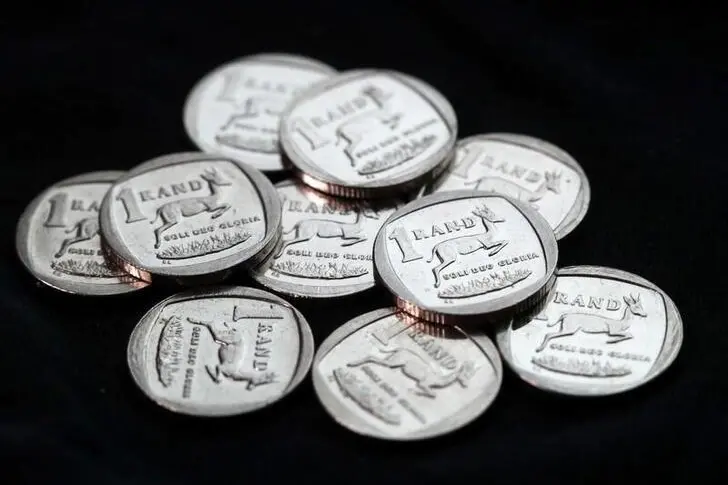PHOTO
South Africa's government will draw down 150 billion rand ($7.93 billion) over the next three years from a central bank-administered contingency account to limit borrowing, the National Treasury said on Wednesday.
Africa's most industrialised economy has barely grown in more than a decade, with GDP growth averaging 0.8% since 2012. Weak revenue collection has seen debt levels rise, with debt-servicing costs consuming a greater share of the national budget.
The bleak economic backdrop is looming large over a general election due on May 29 that could see the governing African National Congress (ANC) party lose its parliamentary majority for the first time in 30 years.
The Treasury said in the 2024 budget that it was able to tap the Gold and Foreign Exchange Contingency Reserve Account (GFECRA) - which had a balance of 507.3 billion rand in January 2024 - because it was "now larger than any plausible losses on foreign exchange reserves from rand appreciation".
It said the government would receive distributions from the central bank of 100 billion rand in 2024/25, 25 billion rand in 2025/26 and 25 billion rand in 2026/27.
"This will be formalised through legislation. Government will use these funds to reduce borrowing, and consequently the growth in debt-service costs," Treasury said.
"We are in effect replacing our standard more expensive borrowing with this draw-down of GFECRA," said Treasury Director-General Duncan Pieterse, adding another 100 billion rand from the account would be allocated to the central bank to cover the expenses of the settlement.
As a result of the settlement, gross debt is projected to stabilise at 75.3% of GDP in 2025/26, lower than 77.7% of GDP seen in November.
The consolidated budget deficit in the current 2023/24 fiscal year is seen at 4.9% of GDP, unchanged from November's forecast. The budget deficit is projected at 4.5% of GDP in the fiscal year starting April 2024 and 3.7% of GDP in 2025/26.
GDP growth is projected at 1.3% this year from estimated growth of 0.6% in 2023.
A major constraint on growth for more than a decade has been rolling power cuts that have hurt businesses of all sizes. State power utility Eskom in 2023 implemented its heaviest power outages ever.
South Africa also faces a logistics crisis as another state company, Transnet, struggles to provide adequate freight rail and port services because of equipment shortages and maintenance backlogs after years of under-investment. Rampant cable theft and vandalism have also damaged the network.
"The 2024 Budget strikes a careful balance between the urgent demands of national development and the sustainability of our public finances," Treasury said.
($1 = 18.9092 rand)
(Reporting by Kopano Gumbi and Wendell Roelf in Cape Town, Olivia Kumwenda-Mtambo and Nellie Peyton in Pretoria, and Anait Miridzhanian in Johannesburg Editing by Alexander Winning)



















